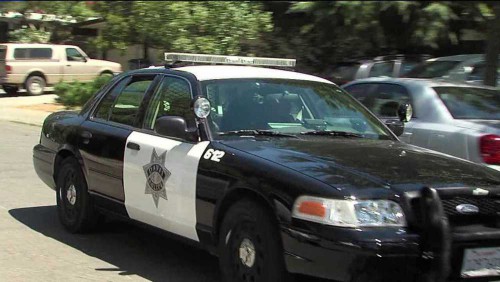
Contrary to the notion being drummed up by columnist Bob Dunning, the city took strong steps last week to address problems in the approach to the Picnic Day incident, while helping to avoid a repeat of the mistaken and disastrous hiring of John McGinness to investigate the incident.
In creating their revised policy for the deployment of undercover officers, the city is tacitly acknowledging that the scene was handled poorly by police officers – who clearly sowed confusion with their aggressive approach in plain clothing and turned a situation that was crowded but calm into a escalation of physical violence and a use of force.
Mr. Dunning doubles down on his previous unsubstantiated assertion that “no matter which investigator eventually replaces former Sacramento County Sheriff John McGinness, there will be folks accusing him or her of bias in favor of the police or bias in favor of those arrested.”
As we pointed out on Friday, this ignores the fact that some investigators are inherently better than others and will be more acceptable to a wider net of people. The problem with Mr. McGinness was not simply his indefensible comments on the Civil Rights Act of 1964, but his broader record of supporting even questionable police actions – even those where neutral parties faulted the police on their use of force.
Mr. Dunning adds, “The battle lines are so firmly drawn now that it will be impossible for anyone to file a report on which both sides can agree.”
I disagree that there are simply two sides here. There are a lot of people who think that both the police and the defendants acted inappropriately and we simply do not know what all transpired without audio.
Mr. Dunning later calls the actions by City Manager Dirk Brazil “quick and decisive actions.”
He goes on to state, “Brazil, a good man who is not afraid to make hard decisions, is not waiting for the results of the investigation before instituting some changes he believes will be beneficial if and when a situation like the one on Picnic Day arises again, as it no doubt will. Probably next Picnic Day, in fact.”
Leaving aside another gratuitous shot at Picnic Day by the city’s old guard, the praise lumped onto Dirk Brazil is a bit curious. From our standpoint that is a lot of praise to give to a man whose role here is uncertain at best.
First, Davis’ Police Auditor is leaving at the end of his contract. Part of the reason for his departure is he feels the department and specifically the police chief have been uncooperative. But Bob Aaronson ostensibly answers to the city manager, who apparently simply allowed this situation to fester to the point where it became untenable.
Second, there is the whole matter of John McGinness, whom the city manager apparently signed off on. Last week, the Vanguard reported about the radio show from the previous Friday, where the former sheriff stated that African Americans fared better before the Civil Rights Act – but even before that, the previous Thursday, the Vanguard questioned the hiring based on a brief but informative Google search.
So, we want to praise the city manager for his statement, but not ignore that he failed to perform due diligence on Mr. McGinness in the first place.
Behind the scenes we have heard complaints about the disproportionate influence the city attorney, Harriet Steiner, has had on this entire process – pushing the city manager aside and allowing the police chief to put a favorable voice in to conduct the investigation.
Sorry, Mr. Dunning, but before we praise the city manager, perhaps we should have a better understanding of how this situation spiraled out of control.
And is this new action the result of the city manager’s initiative, or the council finally asserting its own authority?
Mr. Dunning, in reciting the changes, proclaims, “Hard to argue with any of that, though we still don’t know if these three officers… were specifically deployed to break up this crowd blocking a significant portion of one lane of Russell Boulevard. Or, did they just happen upon the scene en route to another location where undercover attire might have been both appropriate and useful.”
That’s kind of an irrelevant point. The larger point in question is that the police approached a scene which, while spilling out onto the streets, was not out of control. They could have waited and brought in uniformed officers.
Had they had a forward-facing red light, at least the party-goers would have known immediately that this was a police van, and their initial response could well have been very different.
That is the key to understanding the issue, and the city is basically acknowledging that this was handled poorly by the police involved.
The bottom line now is that we need to be able to have an investigation whose findings will be credible and respected. I have questions about whether the current process is a good approach – but at least we are moving in the right direction.
—David M. Greenwald reporting







I totally agree, maybe it’s time for the Vanguard to back off too.
David Greenwald said . . . “I disagree that there are simply two sides here. There are a lot of people who think that both the police and the defendants acted inappropriately”
I agree with that statement 100%.